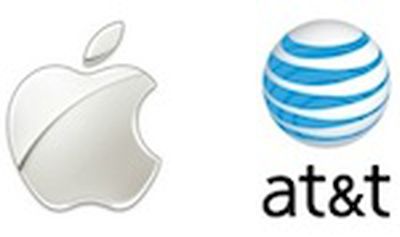
ZDNet reports on a new feature article in the August 2010 issue of Wired discussing the relationship between Apple and AT&T and how the success of the iPhone has enabled the partnership to continue despite each company's faults. While the full article is not yet available online, ZDNet's summary provides some interesting details.
Apple and AT&T fell in love and quickly got hitched. Then after the honeymoon was over they started noticing each other's faults. Apple was staunch and unwilling to restrict the iPhone's Internet access, AT&T couldn't build its network out fast enough to accomodate them. Then came the finger pointing. But the two couldn't divorce, for the the sake of the kids. So they ended up tolerating each other, for the time being.
The report points to Apple's choice of Infineon for the cellular communication hardware in the original iPhone as an example of the tensions between the two companies. Infineon had traditionally been focused on the European market where cellular towers are located more closely together than they typically are in the U.S. But when AT&T asked Apple to work together on making Infineon's hardware in the iPhone work better with AT&T's U.S.-style cell site configurations, Apple reportedly declined, saying "No, you resolve them. They're not our problem. They're your problem."
An Apple source also indicated to Wired that Apple CEO Steve Jobs has suggested at a least half a dozen times that the company consider dropping AT&T for another carrier. Apple's team went as far as visiting Qualcomm's facilities in late 2007 to investigate the possibility of switching the iPhone over to Verizon's network, but size difference between the chips used for the different carrier technologies would have meant a significant redesign for the iPhone, something the company was unwilling to undertake given other possible issues with the move.
Apple also heavily considered switching to Verizon numerous times. Around the end of 2007, at Jobs' behest, Apple engineers (including Scott Forstall) visited the headquarters of Qualcomm - the primary supplier of the chips in Verizon's phones. It concluded that switching to Verizon would be too complicated and expensive because the chips were different sizes and would necessitate rebuilding the iPhone from scratch. Apple also wasn't convinced that Verizon's network would fare much better and let's not forget the nasty lawsuit that voiding its exclusive pact with AT&T would invite.
Interestingly, the Wired article also suggests that a hybrid chip from Qualcomm capable of running on both Verizon's CDMA2000 network and the UMTS network of existing iPhone carrier partners previously rumored for the iPhone is the result of a partnership seeing Qualcomm working with Apple on the chip.
The most recent rumor regarding a Verizon iPhone comes from Bloomberg, which late last month cited sources claiming a January 2011 launch for the device.
Update: The Wired feature article has now been posted.






















